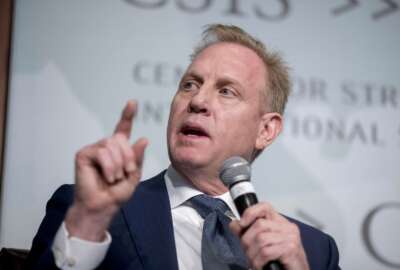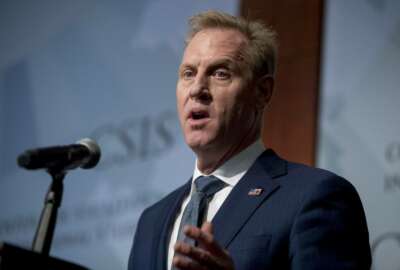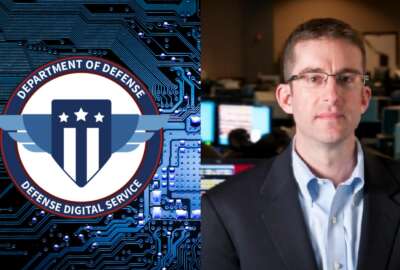
When whistleblowers blow it
The ethical case against Acting Defense Secretary Patrick Shanahan dissolved completely under exhaustive investigation.
Sometimes whistleblowers get it wrong.
A highly visible example occurred this week: Acting Defense Secretary Patrick Shanahan. He had a long stint at Boeing Company, a major Defense contractor. Anonymous whistleblowers went to Sen. Elizabeth Warren (D-Mass.) and alleged Shanahan boosted Boeing and disparaged competitors in meetings. Worse, that he tried to force armed services chiefs to buy Boeing F/A-18 and F-15X aircraft. And that he leaned on Air Force officials to accept a Boeing KC-46 tanker despite technical problems.
Related Stories
The Defense Department’s Office of Inspector General staff reviewed 7,300 pages of documents and interviewed 33 people under oath. Investigators even extracted documents from the Executive Secretariat correspondence database containing the word “Boeing” and related terms such as “KC-46” and “F/A-18.”
If any of the allegations were true — and there were several more — they would have been serious ethics violations, unworthy of someone in Shanahan’s position. But the DoD IG found none of it was true.
In its report, the IG didn’t simply say it couldn’t prove Shanahan said or did those things.
“We determined that Mr. Shanahan did not make the alleged comments and did not promote
Boeing, or disparage its competitors,” the report stated.
The IG also said, “[Shanahan] did not participate in any discussions relating to the purchase of specific aircraft or Boeing products. There also was no evidence that he made any comments pressuring General [Robert] Neller, General [David] Goldfein, or anyone else, about purchasing F-15 or F/A-18 aircraft, as alleged. In addition, we found no evidence that Mr. Shanahan was involved in discussions or decisions regarding the acceptance of the KC-46 aircraft or tried to pressure the Air Force into accepting that aircraft.”
In fact, on several occasions Shanahan left the room when a discussion of aircraft acquisition came up, so as specifically not to engage in what might be perceived as preferential behavior. “We also determined that the [Defense] Standards of Conduct Office (SOCO), Mr. Shanahan, and his staff created a rigorous multi-layered screening process to identify Boeing matters from which Mr. Shanahan was disqualified and divert these Boeing matters to alternate DoD officials. That process was adhered to and worked well to keep specific Boeing matters from Mr. Shanahan. ”
I quote at length here to make the point that not only did Shanahan not do what the whistleblowers alleged, he did nearly the complete opposite. He’d signed documents recusing himself from matters having to do with Boeing.
Air Force Chief of Staff Gen. Goldfein told the IG, “I never heard him say anything about
Boeing. My experience is that he’s been very disciplined about adhering to the recusal.”
Quite simply, the whistleblowers blew it. No fuzzy zone here.
From the standpoint of witnesses to tangible wrongdoing, that’s too bad, given the high visibility of the allegations. Because these were both anonymously and vague, they stand almost laughably distinct from those of whistleblowers who have risked — and sometimes lost — their careers in pointing out tangible, measurable wrongdoing or mismanagement.
Above all, real whistleblowers should be upset at the thin tissue of allegations against Shanahan. He may be the best candidate for Defense Secretary in history or the worst, but he did not act unethically.
Shanahan isn’t the first political figure to be wrongly accused. Compared to, say, one time Labor Secretary Ray Donovan or HUD Secretary Henry Cisneros, Shanahan is unscathed. Amid a blizzard of allegations and charges, Cisneros eventually plead guilty to having lied to the FBI about something unrelated to his public duties, and was pardoned by President Bill Clinton. Donovan was acquitted of mob-related schemes in New York after only 10 hours of jury deliberation. He famously asked afterwards, “Which office do I go to get my reputation back?”
Copyright © 2025 Federal News Network. All rights reserved. This website is not intended for users located within the European Economic Area.
Tom Temin is host of the Federal Drive and has been providing insight on federal technology and management issues for more than 30 years.
Follow @tteminWFED






